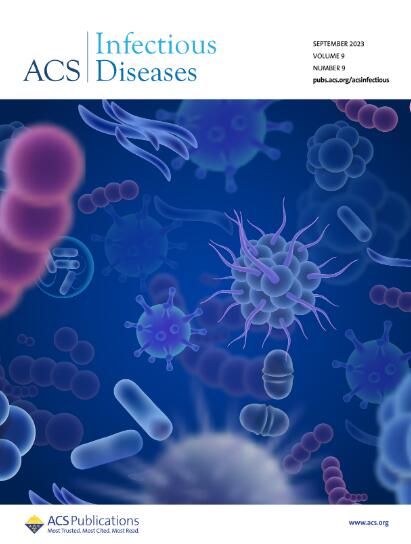承诺(不)诚实:对个人的社会承诺或诚信誓言对不诚实行为的不同影响的系统性元分析回顾。
IF 4
2区 医学
Q2 CHEMISTRY, MEDICINAL
引用次数: 0
摘要
在日常生活的许多情况下,人们会对其他个人、团体、组织或道德规范产生承诺感。这种社会承诺可以带来积极的结果,如提高工作满意度或延长人际关系;然而,承诺感也可能带来不利影响。最近在安然或大众等公司发生的备受瞩目的欺诈或腐败案件,很可能是受到了对组织或同事的强烈承诺的影响。虽然社会承诺可能会增加不诚实行为,但对于这种情况何时以及如何发生,我们却知之甚少。在本项目中,我们查阅了 20988 篇文章,重点关注通过实验操纵社会承诺并测量不诚实行为的研究。我们从 121 篇文章中保留了 445 个效应大小,涉及 33 个国家的 91,683 名参与者。我们没有发现任何证据表明社会承诺会增加或减少一般的不诚实行为。不过,我们确实发现了证据,证明这种效应在很大程度上取决于承诺的目标。对其他个人或团体的承诺会减少不诚实行为(g = -0.17 [-0.24, -0.11]),而通过诚实宣誓或保证对诚实规范的承诺会增加不诚实行为(g = 0.27 [0.19, 0.36])。分析发现了几个调节变量,并检测到不同效应之间存在一定程度的发表偏差。我们的研究结果凸显了不同形式的社会承诺对不诚实行为的不同影响,并表明将不同形式的承诺结合起来可能是在组织环境中打击腐败和不诚实行为的一种手段。(PsycInfo Database Record (c) 2024 APA, 版权所有)。本文章由计算机程序翻译,如有差异,请以英文原文为准。
Committed (dis)honesty: A systematic meta-analytic review of the divergent effects of social commitment to individuals or honesty oaths on dishonest behavior.
People feel committed to other individuals, groups, organizations, or moral norms in many contexts of everyday life. Such social commitment can lead to positive outcomes, such as increased job satisfaction or relationship longevity; yet, there can also be detrimental effects to feeling committed. Recent high-profile cases of fraud or corruption in companies like Enron or Volkswagen are likely influenced by strong commitment to the organization or coworkers. Although social commitment might increase dishonest behavior, there is little systematic knowledge about when and how this may occur. In the present project, we reviewed 20,988 articles, focusing on studies that experimentally manipulated social commitment and measured dishonest behavior. We retained 445 effect sizes from 121 articles featuring a total of 91,683 participants across 33 countries. We found no evidence that social commitment increases or reduces dishonest behavior in general. Nonetheless, we did find evidence that the effect strongly depends on the target of the commitment. Feeling committed to other individuals or groups reduces honest behavior (g = -0.17 [-0.24, -0.11]), whereas feeling committed to honesty norms through honesty oaths or pledges increases honest behavior (g = 0.27 [0.19, 0.36]). The analysis identified several moderating variables and detected some degree of publication bias across effects. Our findings highlight the diverging effects of different forms of social commitment on dishonest behavior and suggest a combination of the different forms of commitment could be a possible means to combat corruption and dishonest behavior in the organizational context. (PsycInfo Database Record (c) 2024 APA, all rights reserved).
求助全文
通过发布文献求助,成功后即可免费获取论文全文。
去求助
来源期刊

ACS Infectious Diseases
CHEMISTRY, MEDICINALINFECTIOUS DISEASES&nb-INFECTIOUS DISEASES
CiteScore
9.70
自引率
3.80%
发文量
213
期刊介绍:
ACS Infectious Diseases will be the first journal to highlight chemistry and its role in this multidisciplinary and collaborative research area. The journal will cover a diverse array of topics including, but not limited to:
* Discovery and development of new antimicrobial agents — identified through target- or phenotypic-based approaches as well as compounds that induce synergy with antimicrobials.
* Characterization and validation of drug target or pathways — use of single target and genome-wide knockdown and knockouts, biochemical studies, structural biology, new technologies to facilitate characterization and prioritization of potential drug targets.
* Mechanism of drug resistance — fundamental research that advances our understanding of resistance; strategies to prevent resistance.
* Mechanisms of action — use of genetic, metabolomic, and activity- and affinity-based protein profiling to elucidate the mechanism of action of clinical and experimental antimicrobial agents.
* Host-pathogen interactions — tools for studying host-pathogen interactions, cellular biochemistry of hosts and pathogens, and molecular interactions of pathogens with host microbiota.
* Small molecule vaccine adjuvants for infectious disease.
* Viral and bacterial biochemistry and molecular biology.
 求助内容:
求助内容: 应助结果提醒方式:
应助结果提醒方式:


